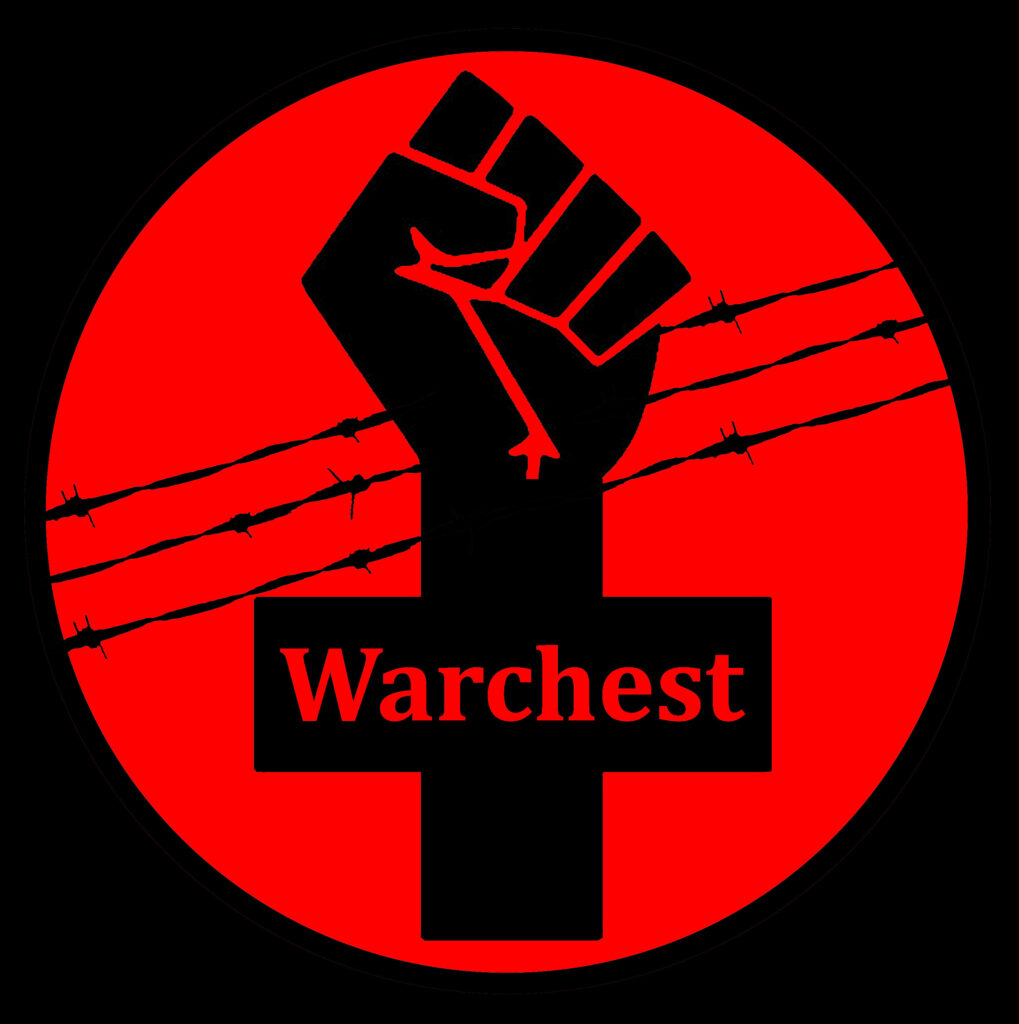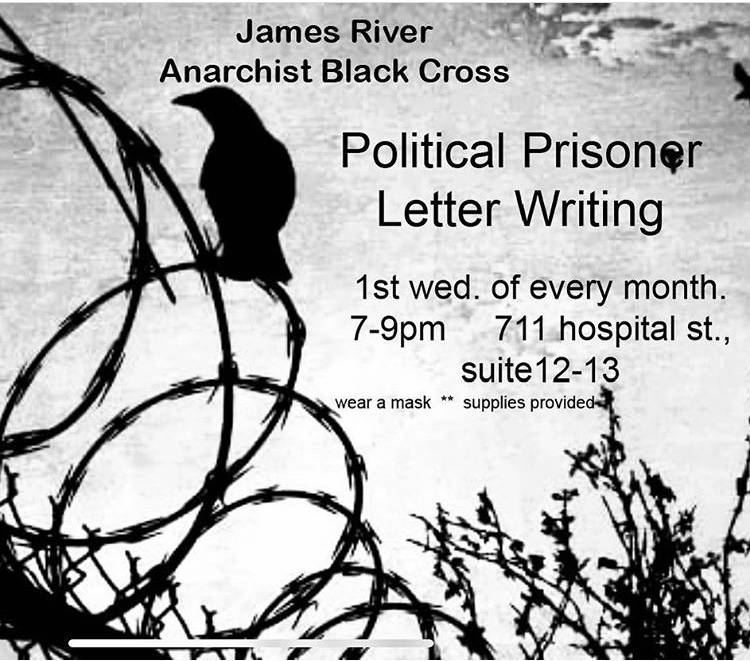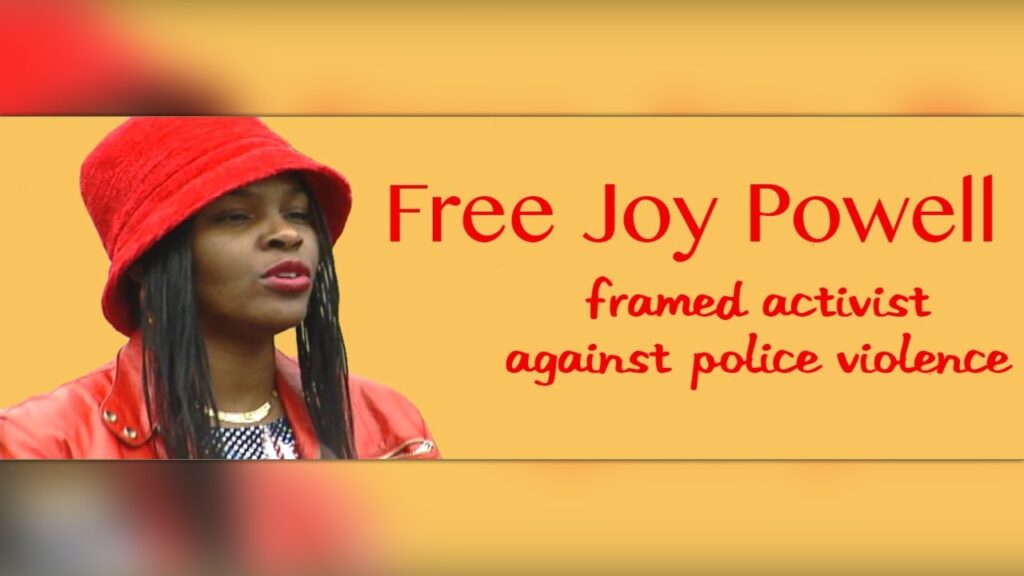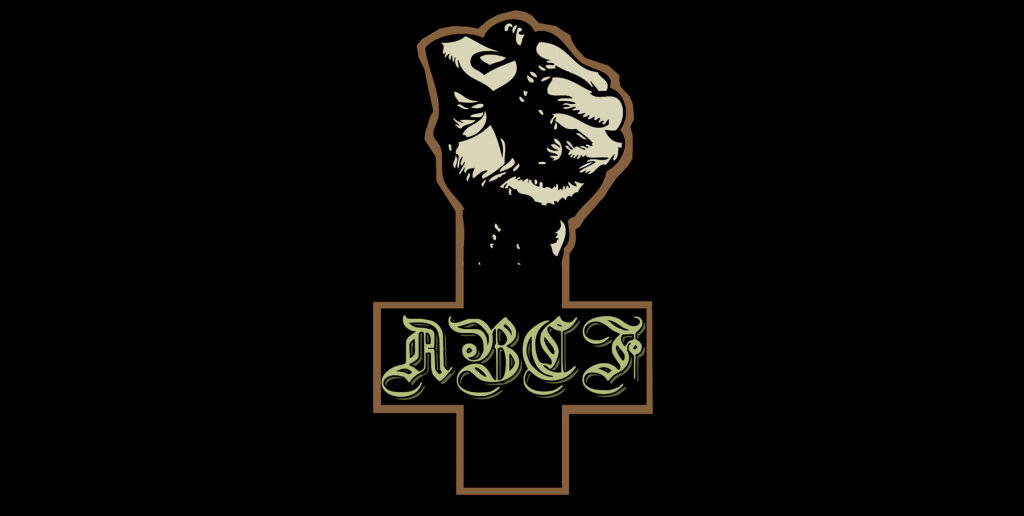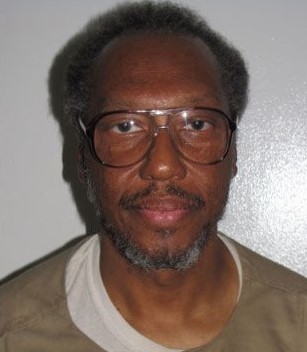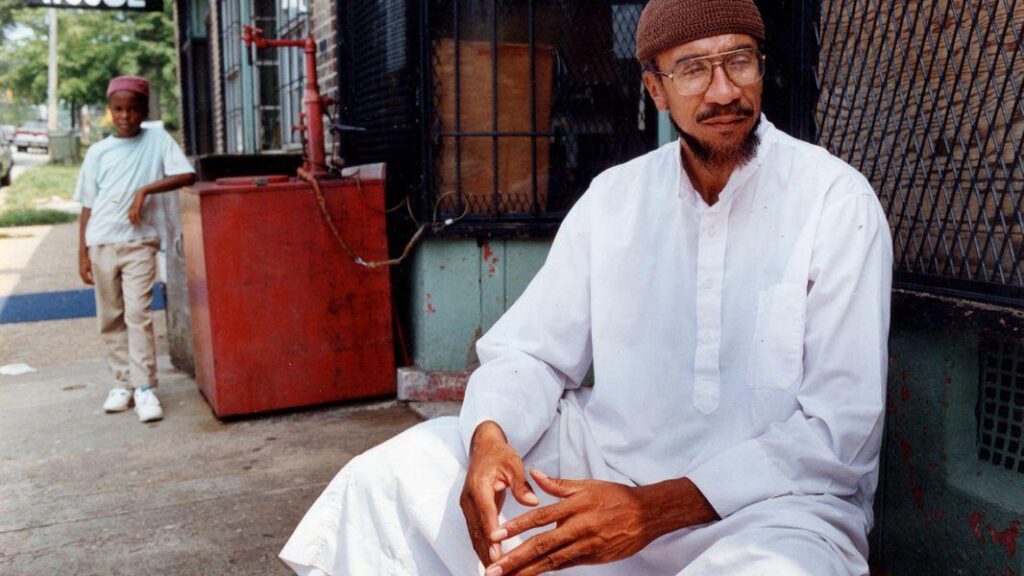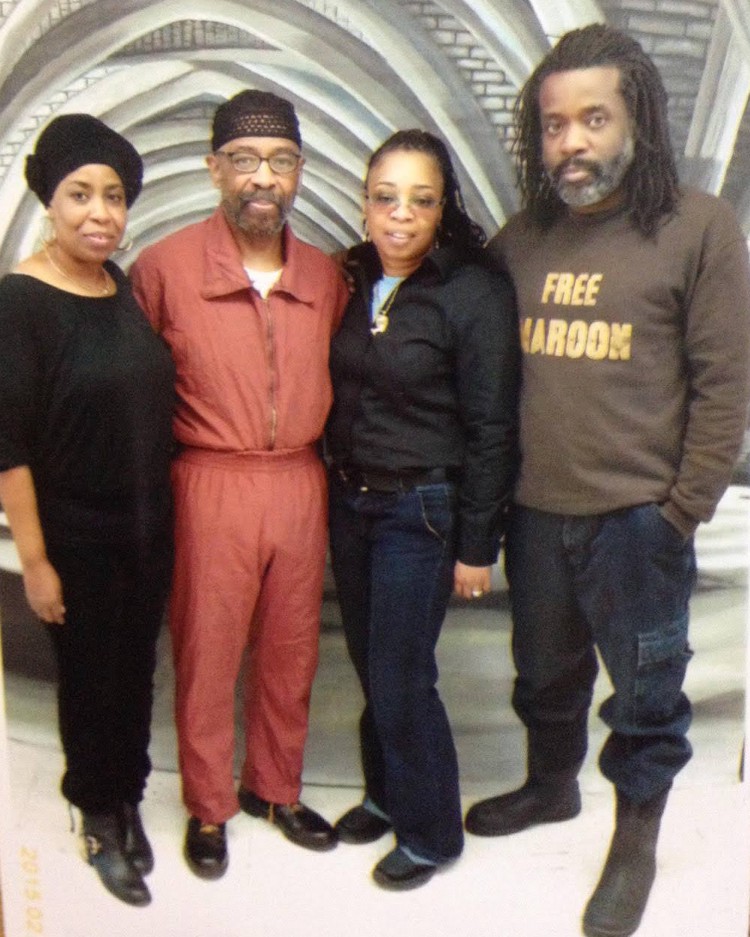
Reposting this amazing testimony to the power of clear thinking about our culture of violence, including weapons of mass destruction almost impossible to imagine. Thankfully, activists like Patrick O’Neill can imagine a world without nuclear weapons, and what that future might look like for the next 7 generations.
BRUNSWICK, GA—In a decision likely unexpected by both the defendants and prosecutors, a federal judge today passed down a significantly lower prison sentence to one of the Kings Bay Plowshares 7.
Judge Lisa Godbey Wood sentenced Patrick O’Neill of Garner, NC, to 14 months in prison for his role in the nonviolent protest on April 4, 2018 at the Kings Bay Naval Base in St. Mary’s, GA.
“I’m grateful that we were able to pull the heartstrings of the judge and help her be as merciful as she can be under the circumstances,” Patrick said afterwards. “Mercy is not her forte.”
Wood began the proceedings by telling Patrick she’d “received quite a lengthy, quite tall stack of records, of letters on your behalf.” (The KBP7 and their support team thank everyone who has written Judge Wood on their behalf!)
Federal prosecutors argued Patrick, 64, should serve the full extent of the recommended prison sentence, up to 26 months, because of his “past criminal history” of nonviolent protest and “noncooperation” during them as well as his “criminal associations” with nonviolent protesters. They argued that Patrick was not remorseful, risked his life and the lives of the people on the base including security personnel, and helped cause more the $33,000 in damages. The prosecutors’ so-called “risk of death” argument is unprecedented in 40 years of Plowshares federal prosecutions.
Representing himself before the judge, and once referring to “the fool for a lawyer that I am,” Patrick objected to dozens of the prosecutors’ arguments. Over the course of the first hour the judge overruled all of Patrick’s objections to the prosecutors’ rationales for lengthening his prison sentence.
Countering the argument that lives were at risk by their action, Patrick said the seven activists were at the site for three hours and seen by guards who repeatedly passed by but kept going. When a guard finally approached Patrick and some of the others the Navy sergeant cracked a joke.
”Now you know you’re all in a bit of trouble don’t you?” he said.
“I don’t think he was feeling at risk of death at that time,” O’Neil told the judge.
Video from the body camera Patrick wore on his head the entire night provided the primary evidence against the defendants. “I went far beyond any acceptance of responsibility of any defendant. I signed a conspiratorial document with my codefendants,” he said.
“You brought to bear the possibility, the specter, of deadly use,” the judge replied. “Thank goodness that nobody was shot.”
Neither the judge nor prosecutor made mention that this protest took place at the locus of the most destructive weaponry in the known universe. When Wood asked the prosecutor if there are any “victims” of the Plowshares’ “crime” available to speak, the prosecutor said there were none.
Two of Patrick’s children testified on his behalf as character witnesses, as did his uncle who helped raise him after his father died when he was five years old. On a video link from his home in Connecticut, Patrick’s uncle Dennis O’Donnell, 80, described his pride of his long time as a soldier in the US Army and 35 years as a Yonkers, NY police officer. O’Donnell, a Trump supporter, then spoke of his long admiration of his nephew and his wife Mary Rider’s kindness and generosity.
“I don’t want to find fault with Patrick because I love him and the other parts of our family love him as well. He’s a committed pacifist and that’s not a dirty word. I’m not against the military in any way. I’m a proud soldier and so are my children. I’m proud of Patrick. I’m proud of Mary. And I’m proud of their children.”
Patrick’s daughter, Bernadette Naro, 32 and a campus minister at a Catholic school in Atlanta, then read a statement describing growing up in the Fr. Charlie Mulholland Catholic Worker House founded by her parents. (The statement will be available at www.kingsbayplowshares7.org.)
“Women and children who were in crisis came to live alongside us,” she said. “My parents chose to live in this way because of their commitment to living out their Christian faith, their commitment to sharing all that they have with the poor, and to taking personal responsibility for the problems they saw in our world. They centered their life around a few questions: Who is Jesus? What was he all about? And, especially what does he require of us? He taught me to dig into these questions as I grew up and considered what to do with my life.
“When we were younger, and my sister and I would argue, my dad’s approach was to sit me down, stand my sister in front of me and say to me emphatically, ‘See your sister in front of you? See her? She is the body of Christ.’ His life is guided by the question of what it means to be a Christian. Not in words, but as a lived reality.”
When Wood asked her if there should be consequences to her dad’s actions Bernadette replied, “I guess there already have been consequences.”
Timmy Patrick, 21, and a student at the University of North Carolina at Chapel Hill, said his father exemplifies “love incarnate, just positive intention towards everyone… (as opposed to) money and power and status.”
“He provides love and care not just for our family but for other people in our community, town, church community, and many of them receive substantial assistance in housing, food, and clothing, and human necessity from my father and mother.
“Dad’s service to community is extended through this action,” Timmy Patrick said. “The Plowshares movement is a very internally consistent group with very strong held religious beliefs who are inspired by the teachings of activists and theologians throughout history.”
His father and his codefendants see nuclear holocaust as “a matter of when. They express legitimate dissent against the hegemony of militarism and violence that exists throughout our nation.”
Although his family members are the most important people in the world to him and they all share the same perspective, they do not agree on all things, he told the court.
Judge Wood asked Timmy if it is possible to go too far in protesting nuclear weapons. He replied no, not compared to the trillions spent on war.
Seeming to some in the courtroom to be deflated following the testimony of the character witnesses, US Attorney Greg Gilluly referred to Patrick as “a man who has done so much good in this world and has a family to care for.”
He then read a litany of Patrick’s offenses repeating the phrase “Unlike Martin Luther King… Unlike Martin Luther King…” arguing the sentencing guidelines are appropriate.
Patrick then read a long statement to the judge. (It will be available at www.kingsbayplowshares7.org.)
“My hope is to never be vindicated. I hope the world can survive the nuclear arms race, and for global warming to turn out to be no big deal. I want our children and grandchildren to have a future with as much love, hope, and prosperity as most of you and I have enjoyed in our upbringings under First World circumstances.
“I want my efforts on April 4, 2018 to essentially be viewed as misguided, foolish and in vain. In essence, I want to be judged wrong — not just by the findings of this court — but by the world,” he said. “For me to be a failure and a fool would be so much better than the calamity I fear for future generations if the Kings Bay Plowshares´ message turns out to be the horror we fear will come.
“This court, by its refusal to consider the lawlessness of weapons of mass destruction, is essentially declaring the end of the world to be acceptable. If the trident D-5 missiles are ever launched and millions of people die, including many of you who reside here at the center of Ground Zero, one fact will remain clear: No laws were broken.
“Rather than criminals, we are messengers, just like the abolitionists were in the face of legalized slavery, or pacifists who went to prison rather than kill. And we took a chance, risked our freedom, and were mischaracterized by this court as threats to the safety of the community.”
The “decision to invent, build, deploy and possibly use nuclear weapons will not stand the test of time as good moral choices,” just as slavery and other historical wrongs have now been judged by history to have been horrible mistakes, he said.
Patrick reminded the court that only three more nations are now needed for global ratification of the UN Treaty on the Prohibition of Nuclear Weapons. Ratification is expected soon.
In response to the defendants’ prior petition under the Religious Freedom Restoration Act, an earlier judge concluded their act was “prophetic, sacramental, symbolic denuclearization.” Judge Wood, Patrick said, concluded instead that the compelling interest the court has in is to protecting the sanctity of Naval Station Kings Bay. That makes the unusual nature and risk of the action necessary above, he said, lobbying and writing letters.
“No one in this room today can deny that the theatrical tactics of the Kings Bay Plowshares has gotten your attention and the attention of thousands of people all over the world in a way no letter or phone call to Congress could.”
“I want you to see incarceration from the perspective of the convicted,” he said. “For me, walking into this courtroom is agonizing, emotionally horrifying and makes me feel physically sick. A person coming here for sentencing is likely experiencing one of the worst days of his or her life.”
“Trident is the opposite of love. It is a machine of mass destruction, that robs our neighbors of love and hope.
“While I have not heard much support for us expressed by this court, my hope is that I have been part of an effort to plant a seed that will sprout and grow in your souls, and eventually bear the fruit of true peace in your hearts. And that all humanity will come together to reject war and trident and embrace the teachings of Jesus to Love One Another.”
Before passing her sentence Wood told Patrick, “You have a lot to put on the good side. And that must be counted for during sentencing…. But I have to take into consideration…. we are all bound by the laws of this country… There are consequences.”
Patrick must report to prison within 90 days. With time served and good behavior he might be eligible for release about 10 months later. He will then have supervised release for three years. Like the others, he is required to pay towards restitution to the Navy in the amount of $33,504 and $310 in special assessments. The judge ordered probation officers to have access to financial information, permission needed for getting credit, half of Patrick’s wages garnished.
The day before sentencing Patrick, Wood sentenced his codefendant, Jesuit Father Steve Kelly, to 33 months. Kelly has spent every day since the action in a southern Georgia jail and may be released soon, pending another judge’s decision about his probation violation from a protest at Kitsap-Bangor Naval Base in Washington state, the only other Trident submarine base in the US.
“Your criminal history is not a storied as Fr. Kelly’s,” she told Patrick. Codefendant Elizabeth McAlister was sentenced to time served in June. The remaining codefendants, Mark Colville, Martha Hennessy, Clare Grady, and Carmen Trotta, go before Wood for sentencing on November 12 and 13.
Patrick intends to appeal.
It is perhaps a sideways victory. Patrick has received at least six months less time than expected. Still, he must serve a 14-month sentence in federal prison during a pandemic that has claimed hundreds of thousands of lives in the United States alone. Twenty seven people, including a guard, have died of COVID at the Butner Federal Correction Institution, which Wood recommended for his sentence, Patrick said. He said 824 people there have contracted the disease.
But, standing before the judge with his hands behind his back he gave a thumbs up to his family and supporters in the courtoom when Wood read his sentence.
“I think she saw how I live my life and she decided she wasn’t going to give me the maximum,” he said afterwards. “I’m not going away for as long as I thought I was going to be.
“I think this is a good omen for my codefendants.”
PLEASE DONATE
We understand that many are struggling financially at this time. We ask for donations only if you are able and doing well. Thank you for all the support you have given through these past two and a half years. Your support for the Kings Bay Plowshares 7 will help cover the ongoing costs surrounding the seven co-defendants while in prison and their families and communities. Checks can be sent to Plowshares, PO Box 3087, Washington, DC 20010. Or donate online here at this link: https://www.nonviolenceinternational.net/donate_isaiah
EMAIL: [email protected]
WEBSITE: www.kingsbayplowshares7.org
FACEBOOK:https://www.facebook.com/Kingsbayplowshares
TWITTER:https://www.twitter.com/kingsbayplow7
